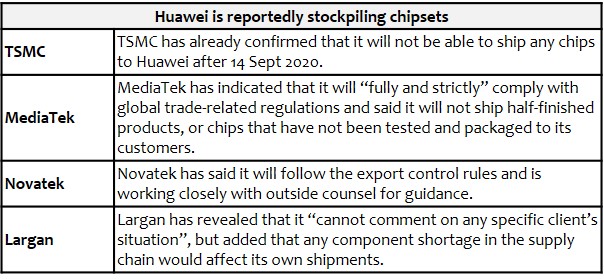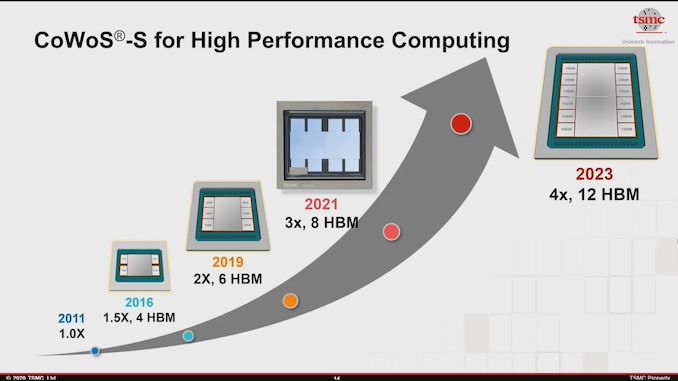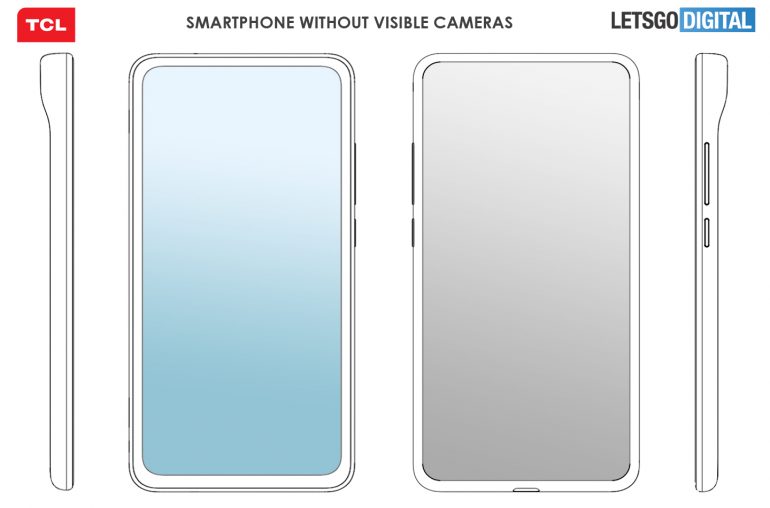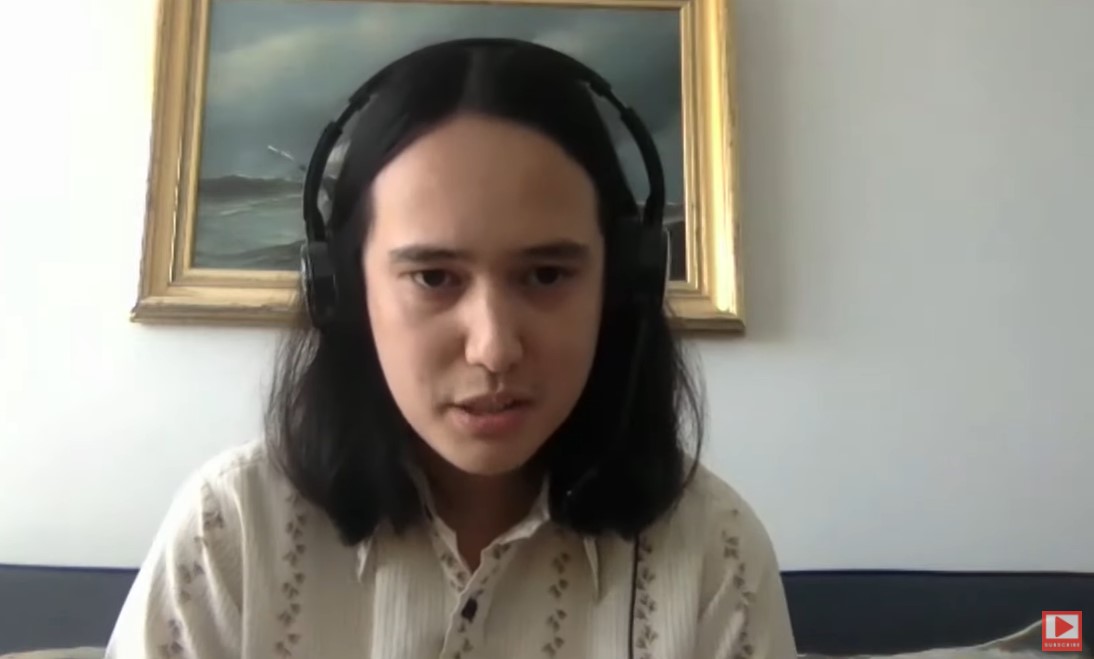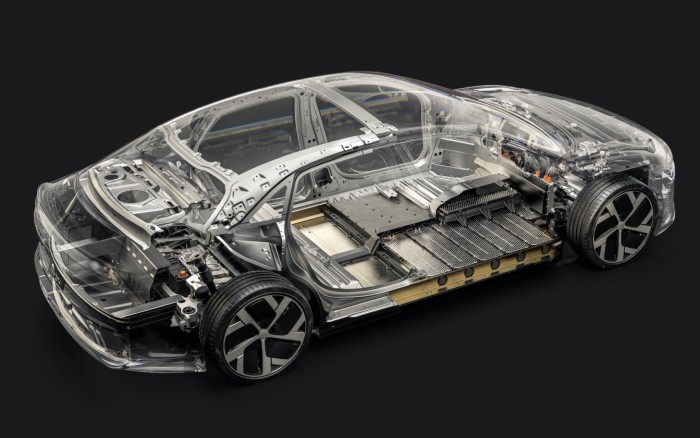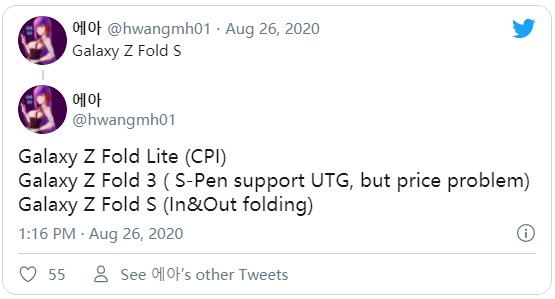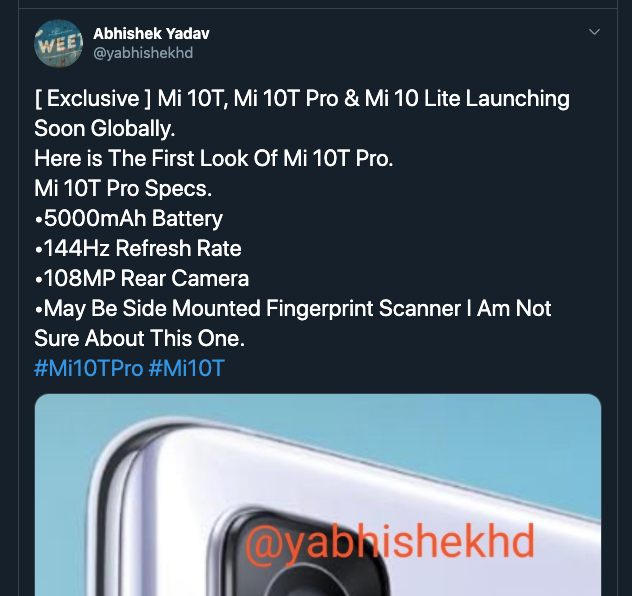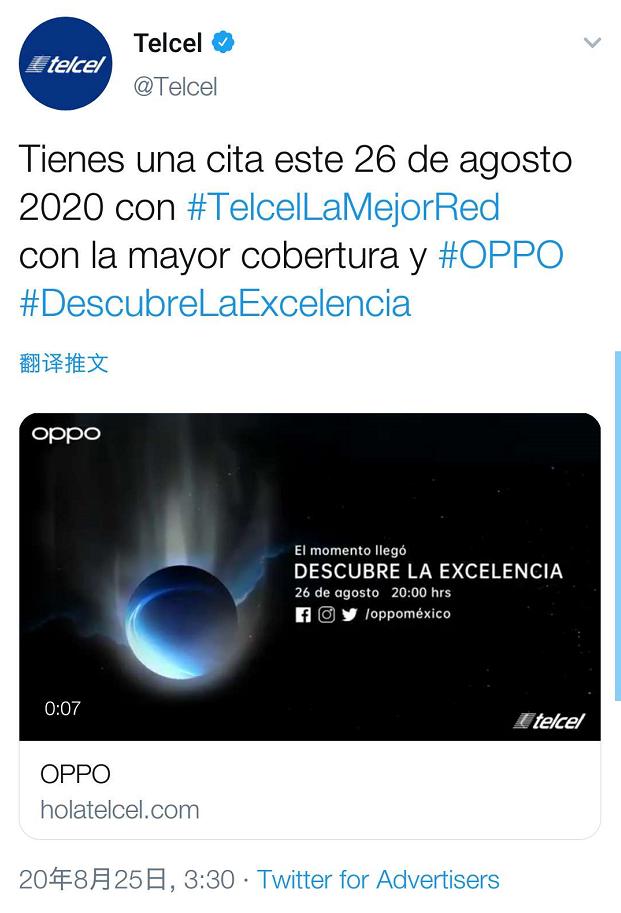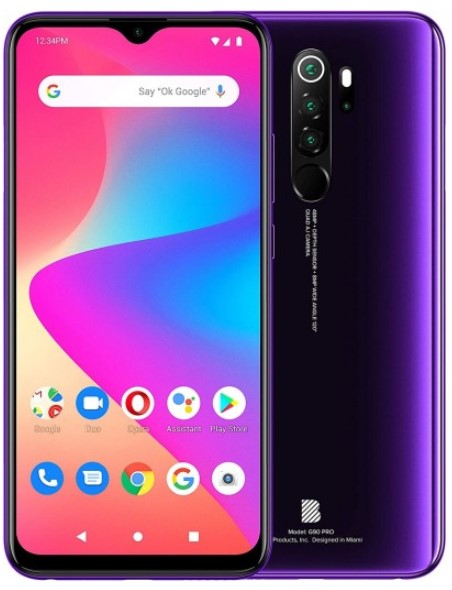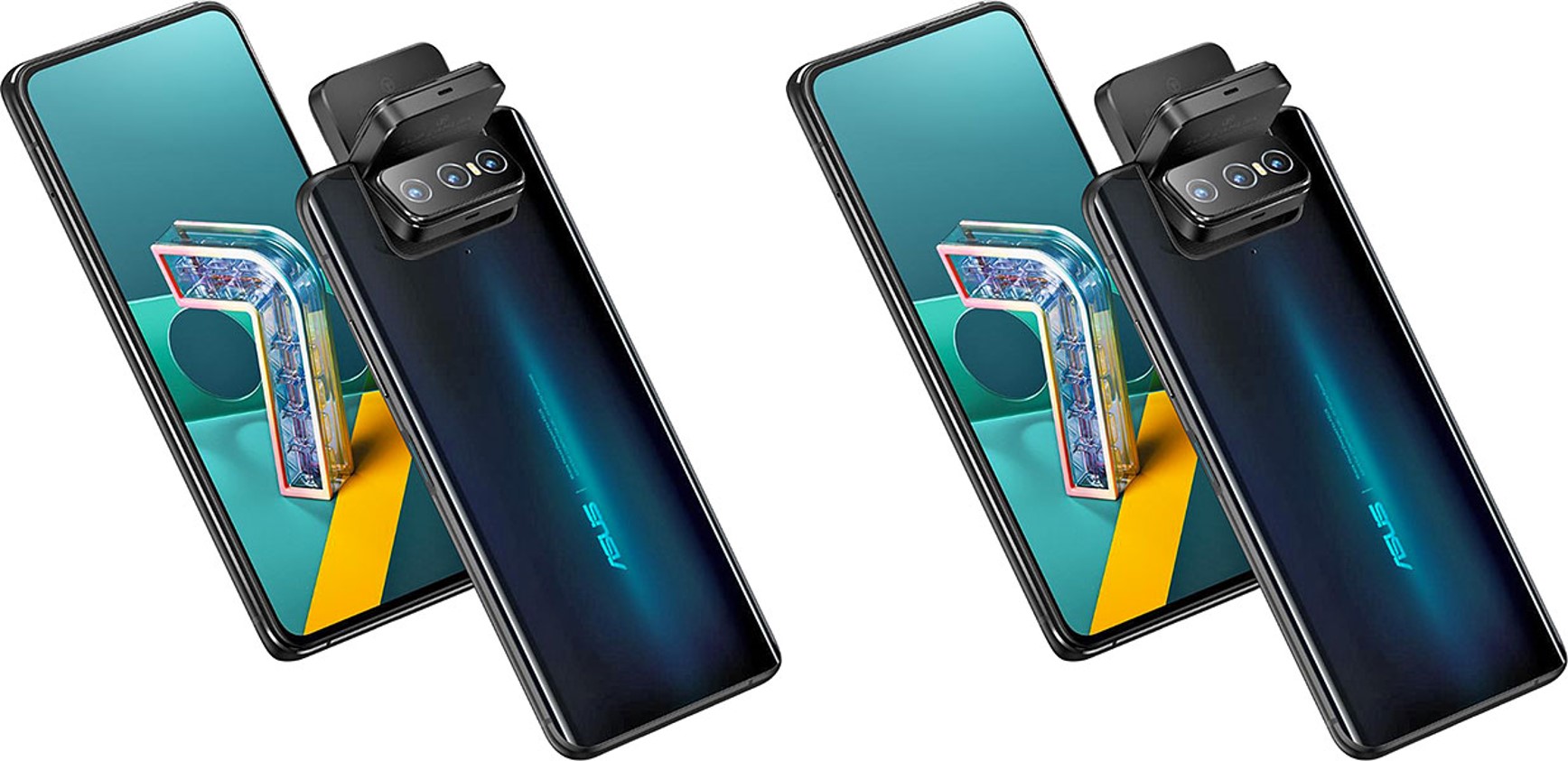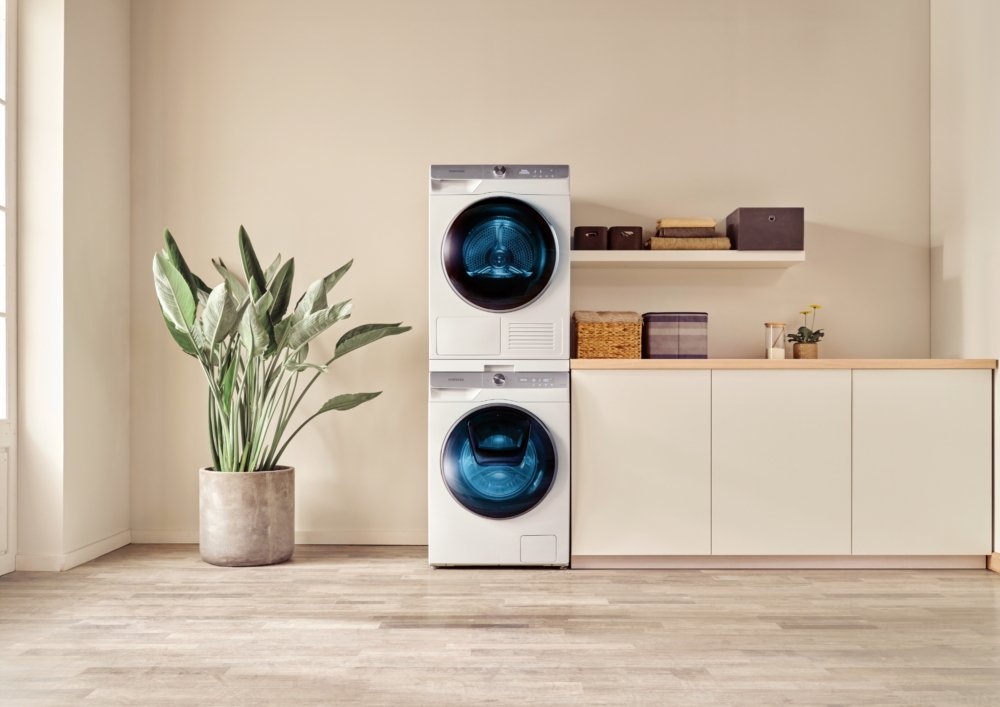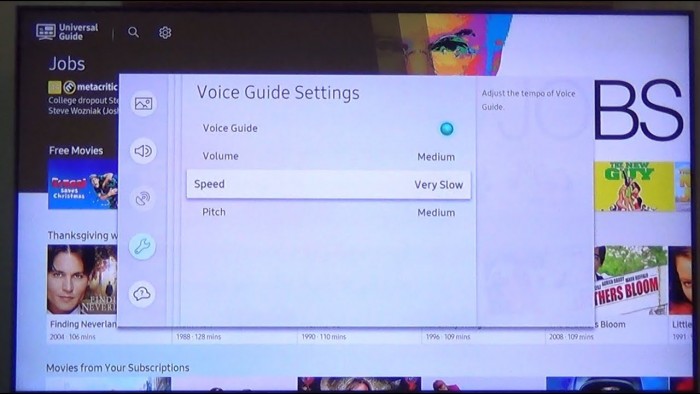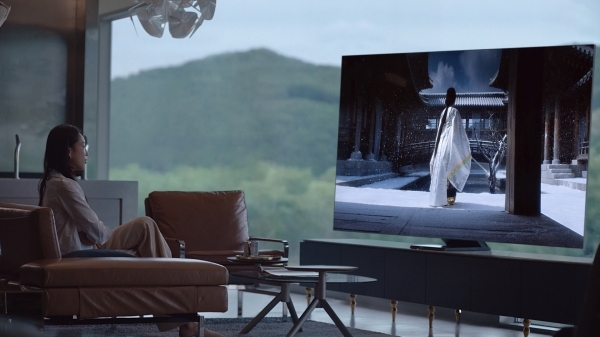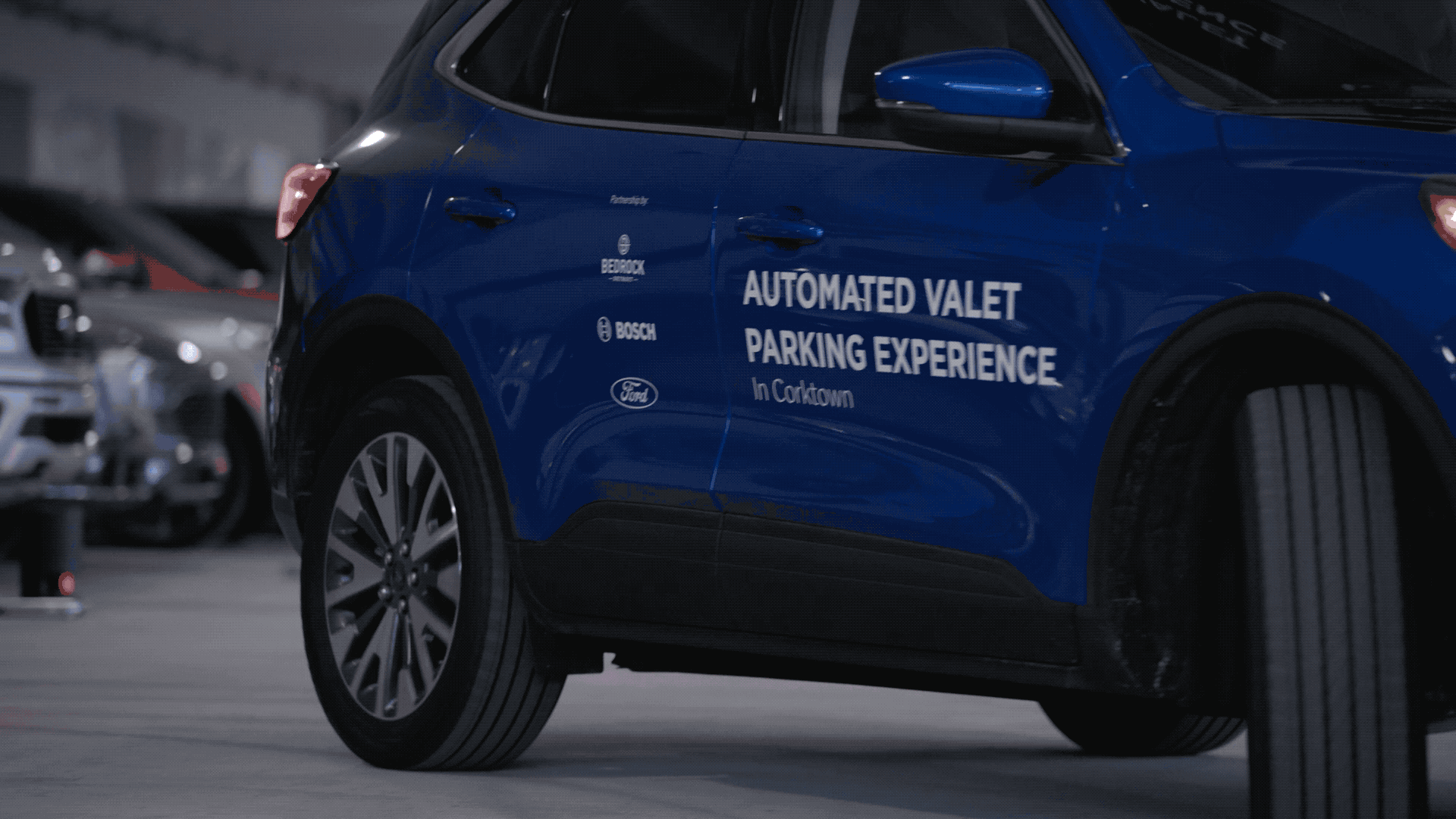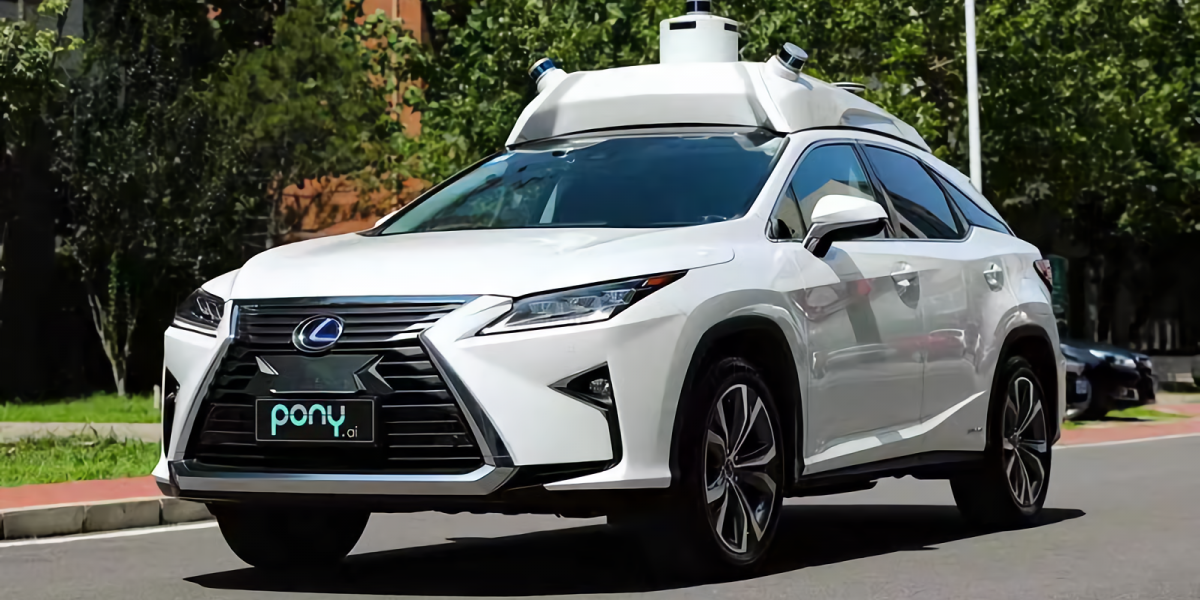
8-27 #Fish: Huawei is reportedly stockpiling chipsets; Ministry of Science and ICT has revealed that it will look into Google and Apple’s in-app payment systems; Samsung may release no less than 3 new foldable Galaxy smartphones in 2021; etc.
Huawei is reportedly stockpiling 5G mobile processors, Wi-Fi, radio frequency and display driver chips and other components from key chip developers including MediaTek, Realtek, Novatek, RichWave and others. If the company runs out of these crucial components, Huawei’s handset shipments could fall by as much as 75% in 2021. (CN Beta, Asia Nikkei, Android Headlines)
Jeff Wang, chairman of the Tokyo-based subsidiary Huawei Japan, has revealed that procurement from Japanese suppliers grew by more than 50% in 2019 while the U.S. tightened trade restrictions on the Chinese telecom equipment maker. He has indicated that Huawei “has built up long-term and stable relationships with Japanese suppliers”. (Asia Nikkei, CN Beta)
TSMC has been evolving their CoWoS-S packaging technology over the years, enabling designers to create bigger and beefier designs with bigger logic dies, and more and more HBM stacks. Recently, TSMC has been increasing their interpose size limitation, going from 1.5x to 2x to even projected 3x reticle sizes with up to 8 HBM stacks for 2021 products. The company has now teased further evolution of the technology, projecting 4x reticle size interposers in 2023, housing a total of up to 12 HBM stacks. (CN Beta, AnandTech)
TCL has filed a patent showing a smartphone design with under-display cameras. There is no notch on the display, and but there is a sizable hump on the top of its backside, inside of which are likely the selfie and main cameras. (Phone Arena, LetsGoDigital, Sina, ZOL)
Clearview AI CEO Hoan Ton-That has revealed that more than 2,400 police agencies have entered contracts with Clearview AI. Ton-That ballparks Clearview’s fees as USD2,000 a year for each officer with access. According to Ton-That, Clearview AI is primarily used by detectives. (CN Beta, The Verge, YouTube)
Lucid Motors has revealed that its insane 500-mile range is achieved on a 113kWh battery pack. Lucid Motors is preparing to launch its highly-anticipated Air electric sedan in Sept 2020. Now Lucid unveiled its Lucid Air’s “Space-Concept” platform design and confirmed that the battery pack has a 113 kWh capacity. (CN Beta, Electrek)
South Korea’s Ministry of Science and ICT has revealed that it will look into Google and Apple’s in-app payment systems over claims that they apply excessive commissions to app developers using their platforms. (Android Central, Korea Herald, CN Beta)
Samsung may release no less than 3 new foldable Galaxy smartphones in 2021, namely Galaxy Z Fold 3, Galaxy Z Fold Lite, and Galaxy Z Fold S. (Android Central, GizChina, Android Headlines)
Xiaomi is reportedly launching Mi 10T series comprises of 3 phones – Mi 10T, Mi 10T Pro, and Mi 10T Lite. For the Pro model, it is equipped with 144Hz refresh rate display and 108MP main camera. (Android Authority, Twitter)
OPPO has announced signing a strategic cooperation agreement with Latin America operator América Móvil to help its expansion in Mexico and other Latin American markets. (Neowin, Passion Movil, Infoutiles)
BLU G90 Pro is announced in US via Amazon – 6.5” 1080×2340 FHD+ v-notch, MediaTek Helio G90T, rear quad 48MP-8MP ultrawide-2MP macro-2MP depth + front 32MP, 4+128GB, Android 10.0, rear fingerprint scanner, 5100mAh 18W, wireless charging 10W, USD250. (GSM Arena, BLU)
ASUS Zenfone 7 and 7 Pro are announced in Taiwan, featuring 6.67” 1080×2400 FHD+ Super AMOLED 90Hz HDR10+, Android 10.0, side fingerprint scanner, 5000mAh 30W, reverse charging: Zenfone 7 – Qualcomm Snapdragon 865, motorized flip-up tri-cam 64MP-12MP ultrawide-8MP telephoto 3x optical zoom OIS, 6+128GB, NTD21,990 (USD750). Zenfone 7 Pro – Qualcomm Snapdragon 865+, motorized flip-up tri-cam 64MP OIS-12MP ultrawide-8MP telephoto 3x optical zoom OIS, 8+256GB, NTD27,990 (USD950). (GSM Arena, XDA-Developers, The Verge, CN Beta)
vivo Y20 and Y20i are announced in India, featuring 6.517” 720×1600 HD+ v-notch, Qualcomm Snapdragon 460, rear tri 13MP-2MP macro-2MP depth + front 8MP, Android 10.0, side fingerprint scanner, 5000mAh 18W: Y20 – 4+64GB, INR12,990 (USD175). Y20i – 3+64GB, INR11,490 (USD154). (GSM Arena, Neowin)
Amazon has launched a wristband for health and fitness tracking Halo, alongside a subscription service and smartphone app. Halo can analyze a user’s voice to estimate their mood and detect body fat percentage. Additionally, Halo can track sleep, activity, and skin temperature as well. The wristband will cost USD64.99 during the early access period, a markdown from its usual cost of USD99.99. (The Verge, CNBC, Business Insider)
Fitbit Sense, Versa 3 and Inspire 2 are announced: Sense – All-day activity tracking, sleep tracking, built-in GPS; Pure Pulse 2.0 that can detect high and low heart rate data, with notifications when they pass normal thresholds; and Electrodermal Activity (EDA) sensor to help indicate body’s response to stress. It is priced at USD330. Versa 3 – All-day activity tracking, sleep tracking and sleep score and guided breathing sessions, built-in GPS, a speaker for being able to take Bluetooth calls from phone; Fitbit’s Pure Pulse 2.0 heart rate technology; Around a 6-day battery life, Active Zone Minutes, over 20 goal-based exercise modes. It is priced at USD230. Inspire 2 – 24/7 heart rate tracking, over 20 goal-based exercise modes, guided breathing and female health tracking; 10-day battery life. It is priced at USD100. (CN Beta, Pocket-Lint, Pocket-Lint, GSM Arena, Fitbit, 9to5Google)
Apple plans to add bonus augmented reality (AR) content to its Apple TV+ streaming video service. The new feature is said to take aspects of scenes in a TV show, such as characters or objects, and display them on the viewer’s iPhone or iPad so they can be seen as if they existed in the user’s surrounding environment. (GSM Arena, Mac Rumors, Bloomberg)
Apple has reportedly acquired startup Spaces, which has a team specialized in virtual reality (VR) technologies. Spaces is created in 2016 by DreamWorks Animation veterans, and the startup has been developing VR products since then, including a Zoom add-on that allowed users to hold VR video conferencing using animated avatars. (Protocol, Laoyaoba, 9to5Mac)
Samsung is launching WW9800T washing machine, whichi is equipped with artificial intelligence (AI) features that customize the laundry process to achieve the same powerful wash with less time, energy and effort, as well as Samsung’s EcoBubble and QuickDrive technology. (CN Beta, Samsung)
Samsung has announced that it has received the U.K.’s Royal National Institute of Blind People’s (RNIB) ‘Tried and Test’ accreditation showing that its 2020 Smart TVs are suitable for vision-impaired consumers. The upgraded Voice Guide feature that lets users get key information about programs and instruction on how to use the remote control and other accessibility features. (CN Beta, Samsung, Neowin)
Samsung has indicated that that it is expecting to ship more than 100,000 units of its larger TVs by the end of Aug 2020. The larger TV in this includes those models with a screen size of 75” or larger. The company has launched a new commercial for its QLED 8K TV model. (Gizmo China, The Elec)
Ford, Bosch and Bedrock have announced an automated valet parking demonstration in downtown Detroit. This system is designed to allow drivers to exit a vehicle and the vehicle would park itself in the parking structure. Systems in a Ford Escape test vehicle communicate with Bosch sensors to locate an empty parking location and move the vehicle into the spot. (TechCrunch, Engadget, Ford, Sohu, Sina)
Self-driving startup Pony.ai has announced an agreement with Bosch to “explore the future of automotive maintenance and repair for autonomous fleets”. Pony.ai and Bosch’s Automotive Aftermarket division in North America plan to develop and test fleet maintenance solutions for commercial robo-taxi programs. (VentureBeat, Auto News, PR News, Gasgoo)
White House is announcing a USD1B investment into two of tech’s most promising frontiers, AI and quantum computing. The White House’s new initiative will fund a series of academic and private sector R&D hubs linked to federal agencies to work on foundational problems and “pursue transformational advances” across topics like quantum computing, machine learning and computer vision. (The Verge, WSJ, VentureBeat, TechCrunch, Sina)

